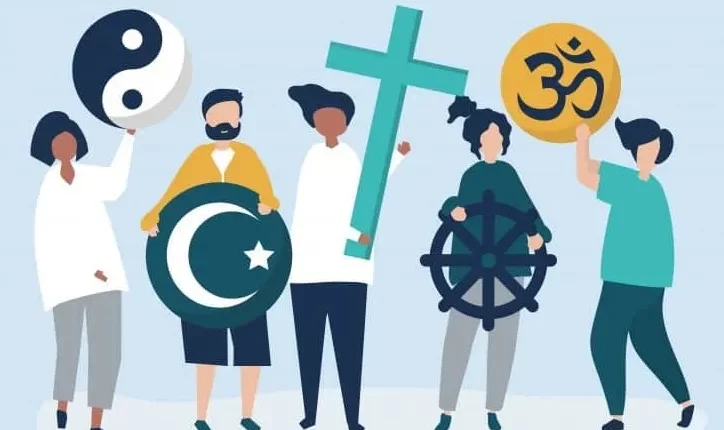Religious Figures Play a Big Role in Making the 2024 Regional Elections a Success
By: Hendra PratamaTowards the 2024 simultaneous regional elections, the involvement of religious figures in maintaining peace and order is an important element to ensure that the democratic process runs safely, honestly, and fairly. On various occasions, religious figures have shown their commitment to not only being spiritual leaders, but also as pillars of moral enforcement in society, especially in preventing violations and maintaining harmony in a pluralistic society.By actively involving religious figures, Bawaslu and the police in various regions are trying to close the gap for violations and conflicts during the implementation of the Pilkada. Their presence is not only as a figure of moral authority, but also as a bridge between the community and the government to keep the democratic process clean from negative practices such as money politics, the spread of hoaxes, and SARA issues that are prone to triggering riots.The Election Supervisory Agency (Bawaslu) of Central Lombok Regency is aware of the urgency of the involvement of community leaders, especially religious leaders, in maintaining the integrity and smooth running of the 2024 Pilkada. The socialization held to educate them about participatory supervision is one of Bawaslu’s strategic steps in rallying public support.According to Usman Faesal, Coordinator of the Prevention, Community Participation, and Public Relations Division of Bawaslu Central Lombok, religious figures have a very significant role in creating a peaceful and democratic Pilkada.Faesal emphasized that Bawaslu could not possibly conduct supervision alone without the assistance of community leaders. The active involvement of religious leaders is expected to expand the scope of supervision and at the same time provide healthy political education to the community. Thus, religious leaders not only function as supervisors, but also as facilitators in maintaining clean elections free from violations.The importance of the involvement of religious figures was also acknowledged by one of the religious figures of Mantang Village, Lalu Ahmad Saiful Hadi, who expressed his commitment to actively participate in supervision. He argued that public awareness of the importance of this supervision must start from themselves.By providing education, religious leaders can encourage people to exercise their right to vote responsibly and avoid practices that damage election integrity, such as money politics and black campaigns.On the other hand, the police are also involved in maintaining security and order during the 2024 Pilkada. The Bangkinang City Police, for example, are actively conducting outreach to religious leaders and the local community through various activities.In the meeting, the Bhabinkamtibmas of Bangkinang City Police, Aipda Masriadi, invited religious leaders to play an active role in maintaining a peaceful atmosphere during the Pilkada process.The main message conveyed in the meeting was the importance of maintaining religious harmony and dismissing SARA issues that are often used as political tools. Masriadi emphasized that harmony between religious communities is one of the main keys to creating a peaceful and safe Pilkada.In addition, he also reminded of the importance of rejecting hoax news that often appears on social media ahead of the election, as well as the dangers of money politics that can damage democracy.Not only that, the Bangkinang City Police are also committed to carrying out preemptive and preventive activities, such as dialogical patrols and house-to-house visits, in order to maintain a conducive atmosphere. This proactive action is one form of police effort to anticipate potential conflicts that could occur during the Pilkada stages.In this case, religious figures are expected to act as mediators and balancers amidst the various socio-political challenges that arise.Not only Bawaslu and the police, the Ministry of Religious Affairs is also aware of its strategic role in overseeing peaceful Pilkada. In various regions, such as in Tegal Regency, the Ministry of Religious Affairs actively holds focus group discussions (Focus Group Discussions) to discuss synergy between the government and religious figures.Head of the Tegal Regency Ministry of Religious Affairs Office, HM Aqsho, stated that elections are a very important democratic process, and the role of religious leaders in maintaining harmony is crucial.According to Aqsho, religious harmony must continue to be maintained, especially during the Pilkada process, considering that Indonesia is a country with religious, ethnic, and cultural diversity. Good synergy between religious figures and the government can be a strong fortress in facing various potential conflicts that can arise during the democratic process.Furthermore, he emphasized that ASN (State Civil Apparatus) must also maintain their neutrality during the election. This commitment is in line with the public’s expectations for a fair, honest, and peaceful Pilkada.Religious figures are not only required to provide exemplary examples in daily life, but are also expected to be able to provide enlightenment to society about the importance of maintaining unity and avoiding division.As the 2024 Pilkada approaches, the challenges faced are not few. Issues such as identity politics, the spread of hoaxes, and money politics are still serious threats that can harm the democratic process. However, with the involvement of religious and community leaders who are more active, the hope for a peaceful and democratic Pilkada is increasingly wide open.The role of religious figures in this case is very strategic. They are not only a balancer in the midst of various political interests, but also a guardian of public morals. Thus, religious figures are expected to be role models who encourage people to be wiser in facing elections, maintaining harmony, and rejecting all forms of fraud.
Public Policy and Political Researcher – Center for People’s Political Studies (PSPR)